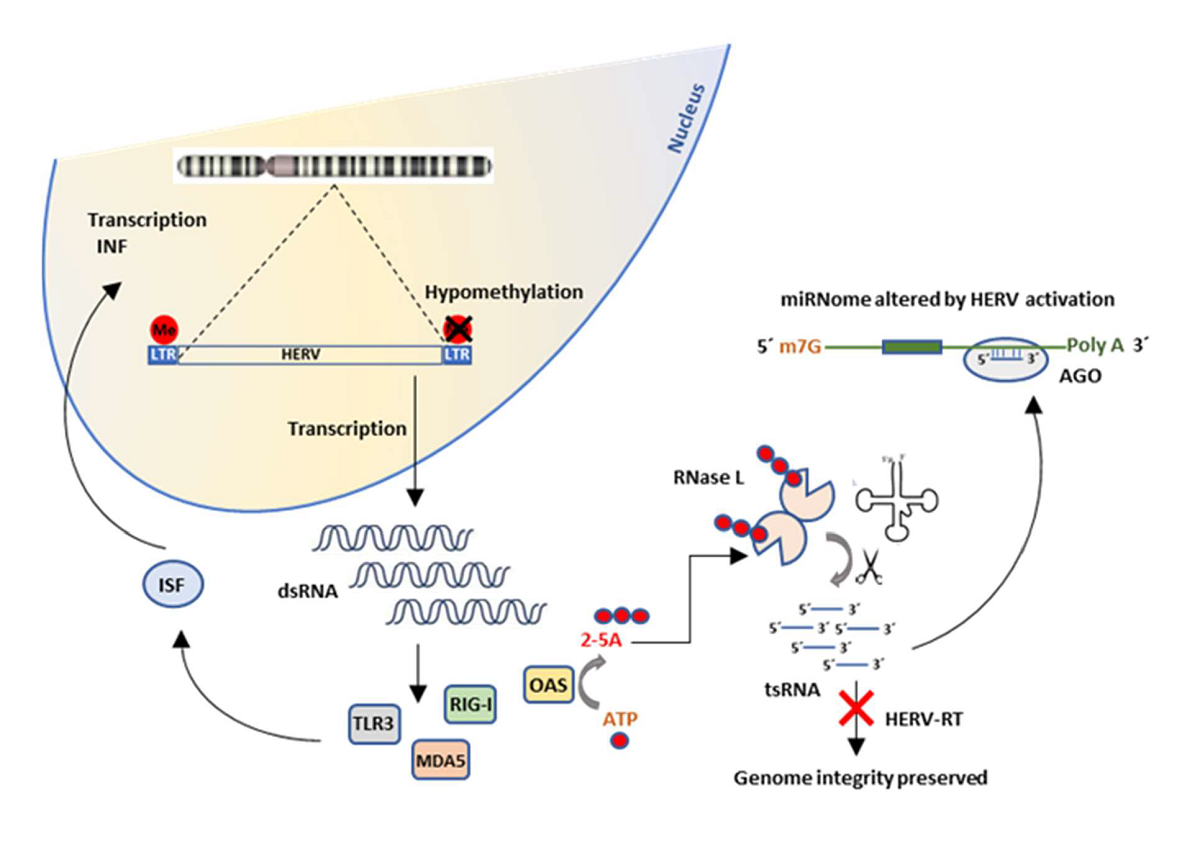The development of nucleic acid sequencing technology and the unprecedented availability of metadata has evidenced that 45% of human genome constituted by transposable elements (TEs) is not only transcriptionally active but also physiologically needed. Aberrant regulation of TEs, and of human retroviral endogenous sequences (HERVs) in particular, associates with several neurologic and autoimmune diseases, including the Myalgic Encephalomyelitis/Chronic Fatigue Syndrome (ME/CFS) frequently comorbid with fibromyalgia (FM). However, no study has yet addressed whether abnormal expression of these sequences correlates with FM. The work presented here shows, for the first time, that in fact HERVs of the H, K and W types are overexpressed in the cells of the immune system of FM patients with or without comorbid ME/CFS. The patients with increased HERV expression (N=14) presented increased levels of interferon (INF-β and INF-γ) but unchanged levels of TNF-α. In support of our proposal that TE activation is a contributor to FM, we find that the tRNA pools are decreased in comparison to matched healthy participants (N=14). The findings reported here could explain the flu-like symptoms FM patients present with in the absence of concomitant infections. Future work towards identifying specific genomic loci differentially affected in FM and ME/CFS is granted.

